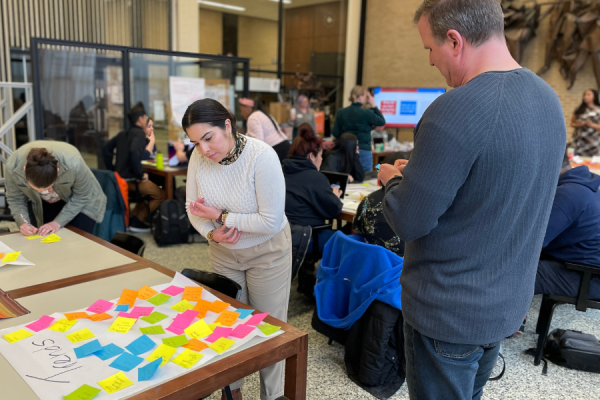In the landmark report, Potholes on the Road to College, UChicago Professor Melissa Roderick and her colleagues at the UChicago Consortium for School Research found that even students with the desire and qualifications to attend college are not supported enough during the planning and application process. They also found that many students who are part of families with low incomes and enroll in college end up at schools that are below the level they are qualified to attend.
To better support students, particularly Black and Latinx young people who are historically underserved, we partner with counselors, college & career coaches, and other educators to develop robust college-going cultures. Our coaches also work with educators to create school environments responsive to young people's adolescent development and foster strong developmental relationships.
High school counselors are postsecondary champions in the school and play an essential role in students' academic performance, social-emotional development, and college readiness.
Research, and our own experiences as leaders at high schools across Chicago, tell us that prepared and focused counselors are vital to improving both the student experience in high schools and college success. Therefore, we support counselors and postsecondary teams to lead this work in their schools.
Preparing All Students for College
Our coaches work with counselors and other educators to address common barriers in schools that keep students from achieving their postsecondary aspirations. The primary goals of this work are to:
-
Develop college-going cultures: Counselors promote college as an accessible and achievable next step after graduation. Counselors work with students and their families to increase their knowledge about how and where to apply to match colleges and help them meet application deadlines. Counselors also coordinate with other school leaders to promote college-going school-wide.
-
Increase match applications to college: Counselors develop processes that help all students complete a minimum number of college applications, including more selective schools for high-achieving students. Counselors also support young people in applying to postsecondary options that match their academic qualifications and social, financial, and personal needs.
-
Complete student aid forms: Counselors implement systems to ensure all graduating students fill out the Federal Free Application for Federal Student Aid (FAFSA). Failure to fill out the FAFSA has often hindered students from being able to attend colleges to where they have been admitted.
-
Choose a good college match: Counselors work with students and families to learn about their opportunities in the complex college environment, fully considering academic rigor, financial aid, and available on-campus supports. Students who attend colleges that "match" their academic, social, and financial needs are more likely to persist.
